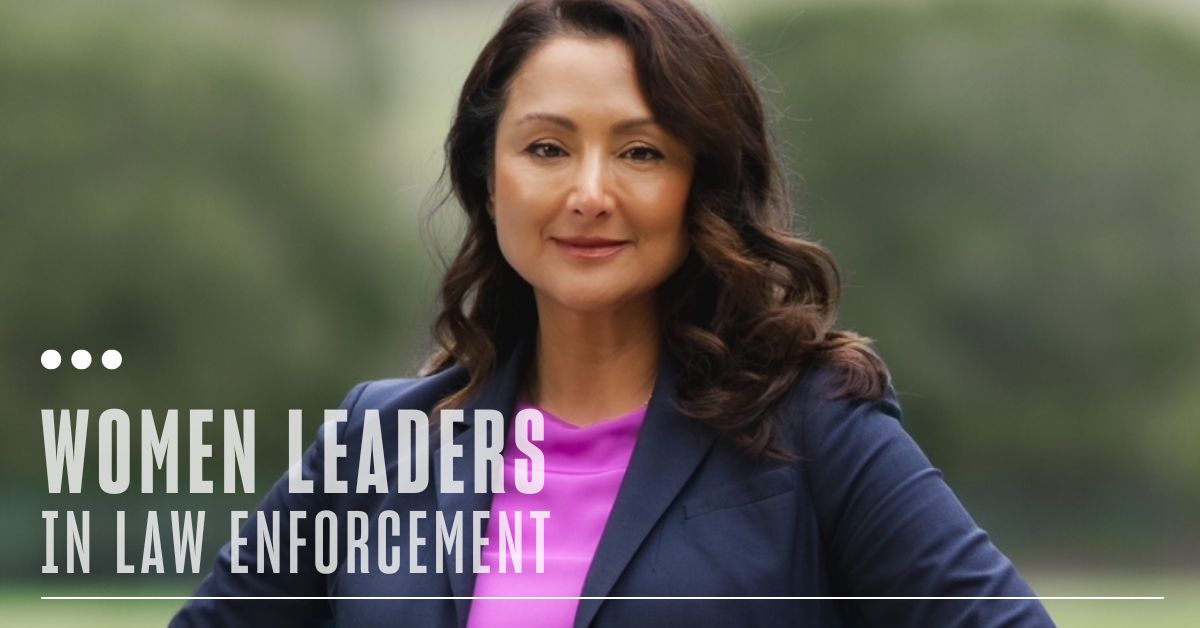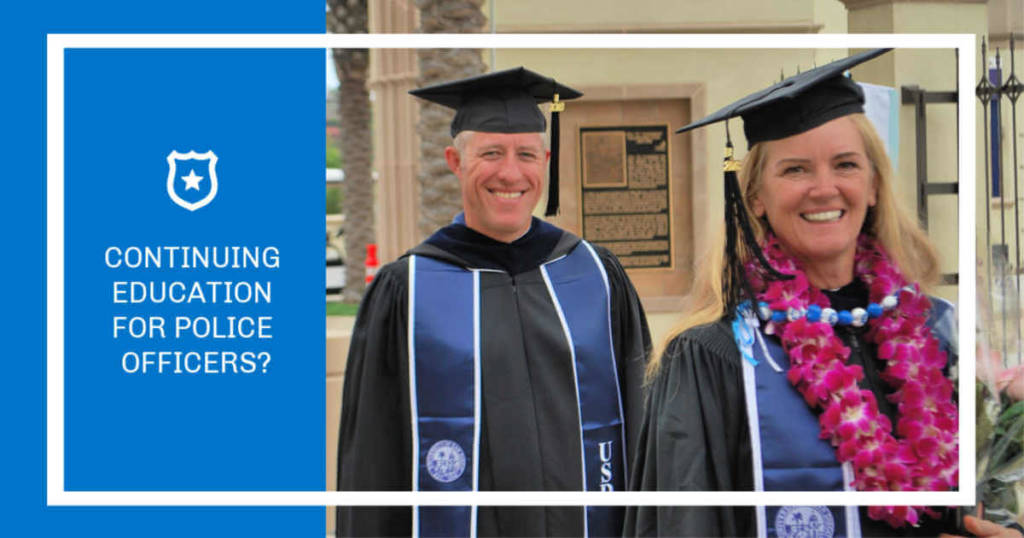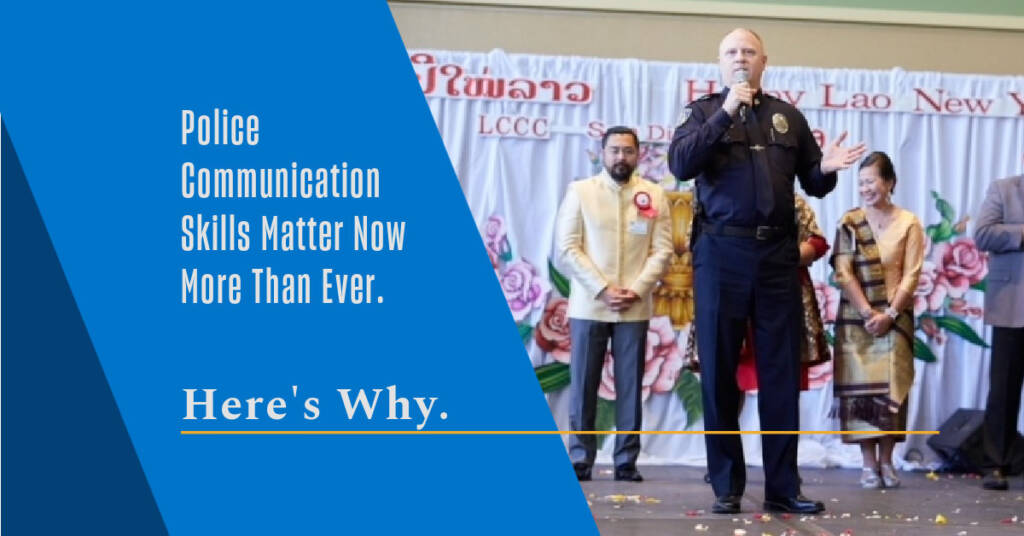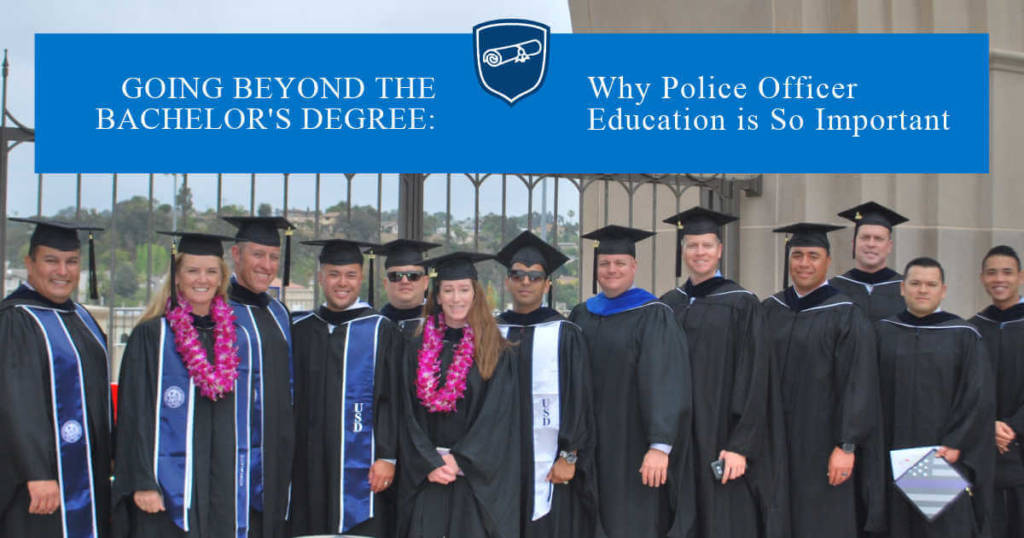Photo caption: Sheriff Christina Corpus, MS-LEPSL program graduate
Women constitute a small but growing percentage of police officers — just 13% — and unfortunately, the number of those in leadership positions is even smaller. Research shows that just 3% of executive-level positions in law enforcement are held by women. Out of 3,685 police chiefs in the United States, 91.7% are men, and only 10% of first-line supervisors are women.
The encouraging news is that there are professional organizations, nationwide programs such as the 30×30 Initiative and dedicated law enforcement leaders who are working diligently to increase these numbers.
Why Are So Few Women in Police Leadership Roles?
Sexism and discrimination still exist in many professional environments today, and law enforcement agencies are no exception. Gender bias in performance reviews and promotional processes may contribute to the lack of women in leadership roles in many police agencies.
According to an IACP Police Chief article, “in surveys, female officers perceived that they were subjected to more criticism than their male counterparts, due to masculine values that support and advance masculinity, as well as sexism that negatively impacts women’s experience in policing.”
A 2019 National Institute of Justice Special Report — Women in Policing: Breaking Barriers and Blazing a Path — discussed how women often face discrimination in the promotion process. The report was derived from the National Institute of Justice’s Research Summit on Women in Policing.
Women at the summit talked about being passed over for promotions, despite earning high exam scores. Attendees also spoke about nepotism and entitlement. One attendee said: “When we talk about the ‘good old boys network,’ I am living it. It’s very deep-rooted and the culture is very bad. The mindset is that women belong at home, cooking for their spouses.”
This viewpoint rings true for Julie Rodriguez, a captain with the Los Angeles Police Department (LAPD), graduate of the FBI National Academy, and alumna of the nationally ranked M.S. in Law Enforcement & Public Safety program, who says she has been asked questions in interviews about balancing her work and family life — questions she knows her male colleagues did not have to answer.
Another major hurdle for women may be themselves.
“A lot of women hold themselves back with their own lack of confidence and bias,” explains Cathy Lanier, former Chief of Police in Washington D.C. and current NFL Chief Security Officer.
In many cases, women often look at a job description and if they don’t check every box, they believe they may not be qualified, whereas men will often apply to the same position if they only check a few of the boxes. This is a mentality that Capt. Rodriguez has seen, as well, and as former Phoenix Police Chief Jeri Williams explains: “We put so much stress on perfection that it keeps us from being successful.”
Rodriguez believes that many women in law enforcement who are mothers often feel torn between being a good parent and giving 100% to their police work. Many women live with “mother guilt.” She also explains that law enforcement in general is a difficult profession that can take a toll, but especially in senior leadership positions that often demand long nights and weekends.
As a board member of the Los Angeles Women Police Officers and Associates (LAWPOA), Rodriguez is passionate about helping other women successfully navigate the promotion process, and regularly mentors women police officers — both in and outside of the LAPD — by offering test preparation and mock oral interviews. She has been through the promotion process herself many times, and explains that in some higher-level positions, such as commanders and deputy chiefs, there is still a feeling of a lack of equity and inclusion. Another potential barrier may be that there are few women at the higher ranks to advocate for other women, which perpetuates the cycle.
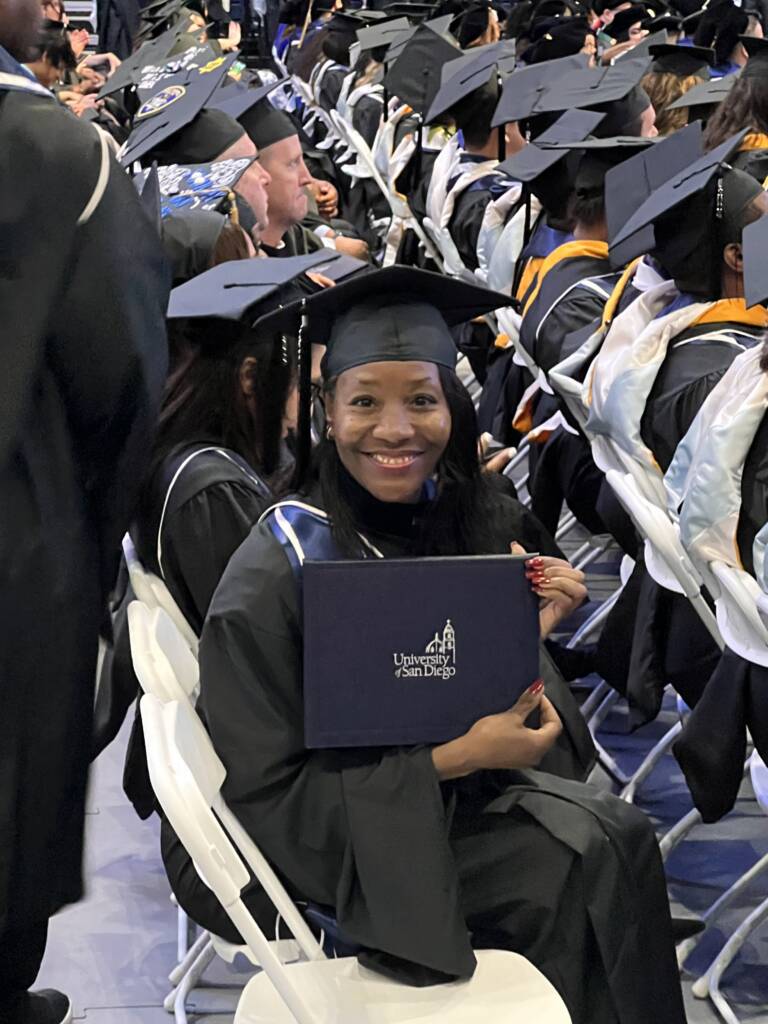
Importance of Female Leadership in Law Enforcement
Many of the attributes of female police officers are characteristics and skills also needed in leadership roles.
Capt. Rodriguez describes women as good listeners who are collaborative, transparent and empathetic. They give credit where it’s due and provide a different aspect to policing that can complement their male colleagues. As the 30×30 Initiative explains, the data shows that women have fewer personnel complaints and are often perceived as more compassionate and honest. All of these attributes are needed for an effective leadership team.
Plus, having more women in leadership positions means that more women will sit on interview boards for promotions. This representation will help ensure a more equitable panel, and will be encouraging to other women who are considering going through the promotional process.
Frederick Police Department Cpl. Sara Leishear stressed the importance of hiring women in law enforcement, especially to leadership positions.
“As a woman in a supervisory role, it’s not only important to have representation in the community, but also have representation within the agency. For cadets and officers, it’s important to see women in higher ranks,” she said. “It allows them to see that it could be an option for them if they wanted to continue in their policing career.”
Retired Chief Deanna Cantrell of the Fairfield Police Department in California agrees that having women represented on police leadership teams shows officers and new recruits that senior-level careers are possible.
“If people can’t see it, they can’t be it,” she said. In short, visibility matters.
How Can Law Enforcement Agencies Turn the Tide?
Promoting women to leadership positions means having female officers to promote in the first place. Capt. Rodriguez stresses the importance of agencies being intentionally visible about hiring women. A change in culture can take a long time, so it’s important that agencies allocate money toward a recruiting campaign and embrace social media, which can serve as an excellent platform for showcasing the inclusivity excellence of a police force and that agencies are not only hiring women, but also promoting them.
It’s important to ensure that women feel like valued members of the team. An article from the National Institute of Justice recommends that “creating a formalized leadership/mentoring program for underrepresented women police officers is one way that many departments are currently attempting to address these issues.”
Another option is to create an accessible community of mentorship. For example, attendees at the National Institute of Justice’s Research Summit on Women in Policing proposed a “statewide or national network of women mentors that would cross departmental lines,” which would be especially important for agencies that do not have officers who can serve in a mentorship capacity.
Women in leadership should feel supported both in the workplace and at home. An article in COPS from the U.S. Department of Justice suggests that agencies provide support for families and new mothers. Family leave, fixed rotations, childcare support, and accommodations for nursing mothers can not only be powerful recruitment tools, but these benefits allow women officers to feel supported, especially if they desire to obtain a leadership position in that agency.
There also needs to be a shift away from traditional masculine norms. “Women law enforcement executives believed they had repeatedly received less respect than their male counterparts throughout their careers because they did not conform to these masculine norms, despite being effective leaders,” according to a special report from the National Institute of Justice.
At the end of the day, agencies need to support women’s efforts to advance and publicly applaud all promotions.
“Encouraging female officers to advance through the ranks and supporting their efforts will not only keep more of them on the force, but also make the department more attractive to female recruits,” explains COPS Dispatch. “Women need to see other women in law enforcement who they can identify with — and see them in a variety of roles and ranks. Be sure to publicize all promotions to higher ranks.”
Advice for Women Looking to Advance to the Leadership Ranks in Their Agency
Carmen Best, who served as the chief of the Seattle Police Department from 2018 to 2020 — and was the first Black woman to lead the agency — recommends keeping the right attitude. “The main thing is to work hard,” she said in a video from Polco about women in police leadership. “Enjoy the job and remember to keep things in perspective. It’s work, it’s a great calling, but it’s one that shouldn’t take over your life. Make sure you have balance.”
Other leadership tips for female officers include:
- Diversify your skillset and work experience.
- Obtain a college degree and additional education.
- Develop and hone excellent communication skills, such as public speaking, which are essential for effective leadership positions.
- Consider pursuing “non-traditional” assignments. While positions that promote soft skills are important, other positions such as SWAT, hostage negotiations and undercover operations will provide diversified experience and create a pathway for promotion.
- Pursue management-level training.
Capt. Rodriguez has coached and mentored many women police officers throughout the years, and she would like women to remember this: At certain levels of law enforcement leadership, you cannot make everyone happy, but you must do what’s best for the department and community. When faced with challenging people she often says to herself “your opinion of me is none of my business.”
She stresses the need for women to be intentionally visible and to proudly take ownership of their ideas and accomplishments.
“Stop apologizing,” she says. “Know who you are and be unapologetic about it as long as you lead and do the right thing. Know you are worthy and have value and are good enough for any promotion.”
She acknowledged that women tend to defeat themselves before they begin but need to remember “we can figure anything out. And there is a sisterhood you can call on to help you.”
Capt. Rodriguez also recommends joining associations and attending conferences such as National Association of Women Law Enforcement Executives (NAWLEE) and Women Leaders in Law Enforcement (WLLE).
But one of her most important pieces of advice is this — women need to remember that they deserve to have career goals and dreams. Capt. Rodriguez explains that women often feel guilty about pursuing opportunities for themselves (such as a promotion or a master’s degree), especially if they have children and are saving for their children’s college, for example. But women should value their aspirations, which also sets a good example for their children.
Lastly, women need to support one another and pay it forward.
“Save a seat for a sister,” Rodriguez says. “When the elevator goes to the top, you send it right back down for the next woman.”
Resources for Female Law Enforcement Leadership & Promotion
Women Leaders in Law Enforcement of Los Angeles (WLLE of LAC) is an organization that’s “dedicated to mentoring, supporting, and inspiring law enforcement professionals.” WLLE holds an annual conference that offers training by subject matter experts and an opportunity for connection and networking among law enforcement leaders.
The National Association of Women Law Enforcement Executives (NAWLEE) offers a comprehensive mentoring program. Participants can either elect to become a mentor by taking an 8-hour course or request a mentor. Participants who are interested in certain law enforcement leadership positions could request a woman in a particular rank.
The International Association of Chiefs of Police (IACP) is the largest association for leaders in law enforcement with more than 31,000 members. The IACP offers the Women’s Leadership Institute, which is a one-week in person (or 9-week virtual) leadership training program. The curriculum focuses on: individual differences; understanding human motivation; leading teams, organization and change; ethical organizations; emotional intelligence and networking/mentorship. This program is open to all law enforcement (federal, local, state and military). You do not have to be an IACP member to attend.
The Federal Law Enforcement Training Centers also offers a five-day Leadership for Women in Law Enforcement training for federal employees.
LinkedIn offers groups specifically for women in law enforcement. This can help foster connections and broaden an officer’s network. Some of the most popular groups are Women in Law Enforcement and NAWLEE.
Additional resources for women in law enforcement leadership include:
- California Police Chief Association’s Annual Women Leaders in Law Enforcement (WLLE) conference
- Women in Federal Law Enforcement (WIFLE)
- Mid-Atlantic Association of Women in Law Enforcement (MAAWLE)
- Kentucky Women’s Law Enforcement Network (KWLEN)
- Ontario Women in Law Enforcement (OWLE)
- Chicago Association of Women in Law Enforcement (CAWLE)
- Minnesota Association of Women Police (MAWP)
- Achieving Women Enterprise (AWE) Foundation

